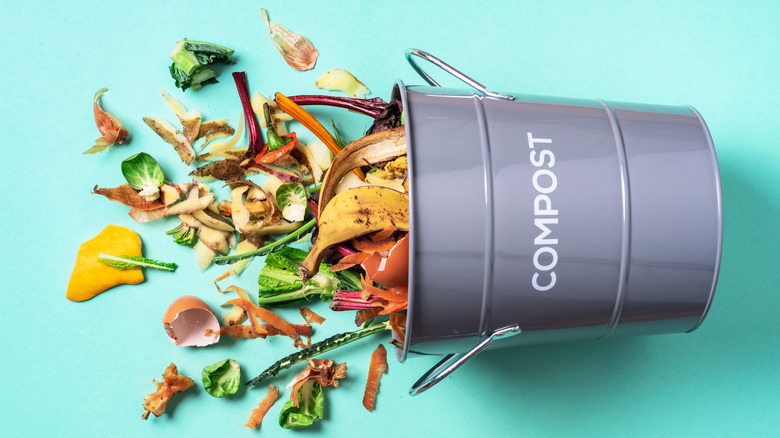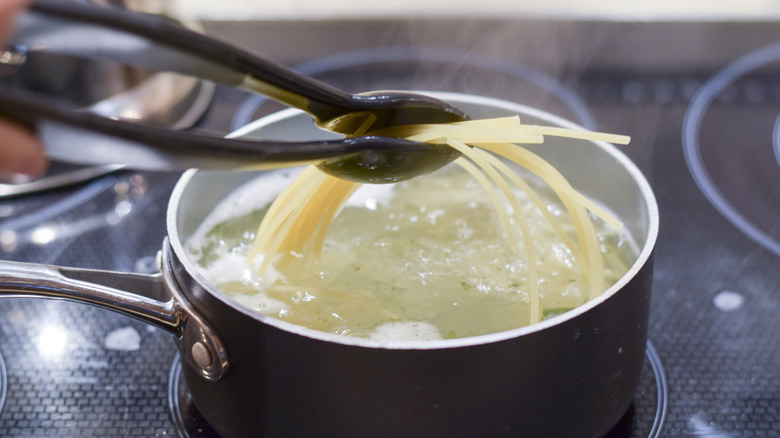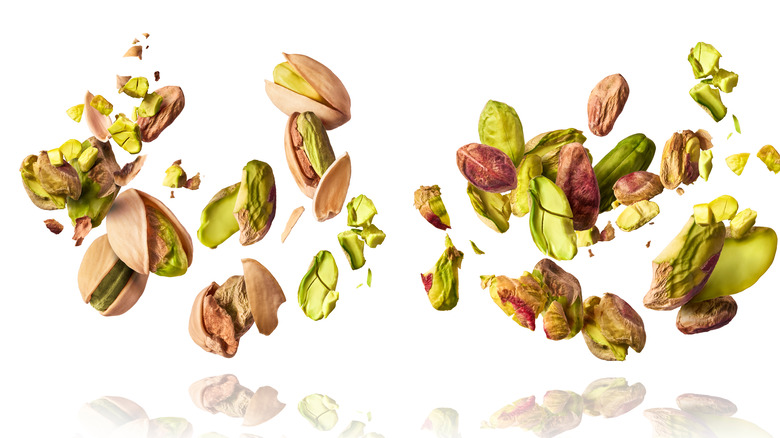The 3 Best Kitchen Leftovers To Add Directly To Your Garden
You might think you've heard it all when it comes to common kitchen scraps that can be used to create a natural fertilizer for the backyard garden. We all know the tales about spent coffee grounds boosting nitrogen levels and eggshells providing an overall mineral boost for our houseplants. But what about our hot peppers and nutshells?
With the prices of fertilizer and pesticides continually rising, says AgriPulse, and more and more backyard gardeners looking for ways to keep their favorite hobby affordable, we're all in need of helpful tips to make the best use of what we already have in front of us.
The good news is that there are many more ways to use yesterday's kitchen scraps out in your garden today. We've got three unexpected ideas that you may have never heard of before now. They'll help you give those plants you love a nutritional boost while also keeping pests and slimy slugs far and away.
Hot pepper trimmings
We all love adorable bunny rabbits, don't we? That is until they sneak into our painstakingly tended gardens and wreak havoc. In that moment, our opinions take a different shape, but we still don't want to hurt the furry little things. Enter the hot pepper scraps from last night's spicy feast.
Hot peppers, oh my! These spicy little devils can do a lot more than burn your trachea on their way down into your gullet. As explained by Taste of Home, you can use your pepper scraps (along with garlic scraps if you so choose) to create a homemade pesticide spray. Not only will it keep leaf-munching animals like rabbits, deer, and squirrels at bay, it'll do so almost for free.
It's the capsaicin contained in the pith — the white rib that holds the seeds inside a pepper — that deters pests (including unwanted insects) due to the spicy sting it leaves behind. Somewhat surprisingly, though, it has not been shown to have any ill effects on pollinators. So, using this sort of natural pesticide really is a win-win situation.
You can make the spray by simply tossing your scraps into a large bottle of water and letting them marinate. Taste of Home encourages sautéing them first to really kick up the heat. Spray garden plants after dinner so that the scent and taste stay strong through the night and reapply often.
Cooking water
If you often prepare hot meals at home and are used to dumping your cooking water right down the drain after straining, it's time to rethink and reuse. Whether you're cooking eggs, vegetables, or pasta, at the end of the process, the water will retain some nutritional value that can then be transferred to your indoor houseplants or to your garden outside. It's also a great way to reduce water consumption and potentially save some of that hard-earned cash you use to buy fertilizer.
East River Nursery explains that the nutrient boost — likely in the form of calcium, phosphorous, or nitrogen — can help balance out deficiencies within the soil that occur naturally over time. You're essentially giving your plants a drink that feeds them as well. Extending the life of your soil is another way to save a little money when every penny counts.
Reusing cooking water to hydrate your plants is a no-mess, economical, and environmentally friendly way to dive into the green thumb spirit. It's also quite easy to do, considering the only thing you really need to remember is to let the water cool down completely before applying it to any plants.
Nutshells
Got slugs? While it is completely understandable if even just the thought of slugs makes you cringe, if you've got them in your garden, they're going to cause some serious damage until you do something about them. Lucky for you, Washington State University has a great tip regarding cracked nutshells, eggshells, or even seashells. Basically, anything with jagged edges and scratchy surfaces can be used to build a barrier that will keep slugs away. Here's how:
Think of a slug's soft, slimy body — slugs are actually mollusks or gastropods (as in sea creatures) that are stuck on land. We may wish they could go live in the ocean, but, unfortunately, they're here to stay. Their skin, and their entire body, is super soft and easy to rip into. Because of this, they will avoid slithering their way across sharp borders. Enter the cracked shells.
To make this work ethically, remove any slugs that are currently present on your plants. Then crack some nutshells, set the nuts aside for a tasty snack for later, and construct an inch and a half wide barrier that will stop those slimy slugs in their tracks. Washington State University adds that your little slug deterrent wall will require some maintenance as the season rolls along.



